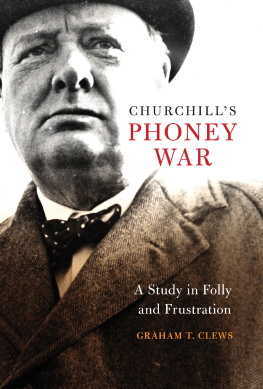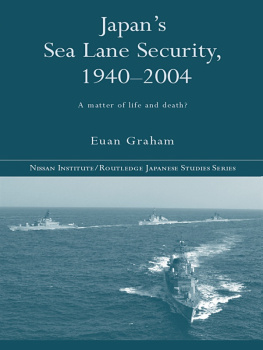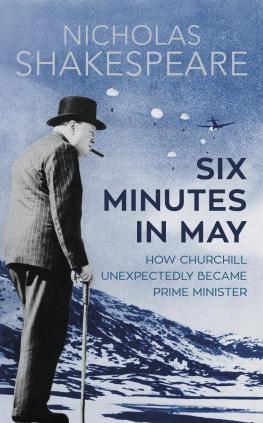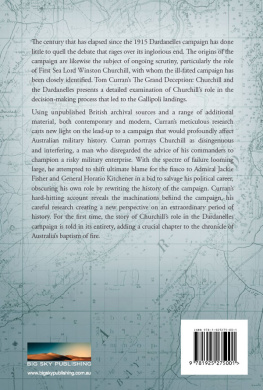First published in Great Britain in 2008 by
PEN & SWORD MILITARY
An imprint of
Pen & Sword Books Ltd
47 Church Street
Barnsley
South Yorkshire
S70 2AS
Copyright Graham Rhys-Jones, 2008
ISBN 978-1-84415-753-2
The right of Graham Rhys-Jones to be identified as Author of this work has been asserted by him in accordance with the Copyright, Designs and Patents Act 1988.
A CIP catalogue record for this book is available from the British Library
All rights reserved. No part of this book may be reproduced or transmitted in any form or by any means, electronic or mechanical including photocopying, recording or by any information storage and retrieval system, without permission from the Publisher in writing.
Typeset by Concept, Huddersfield, West Yorkshire
Printed and bound in England by CPI UK
Pen & Sword Books Ltd incorporates the Imprints of Pen & Sword Aviation, Pen & Sword Maritime, Pen & Sword Military, Wharncliffe Local History, Pen & Sword Select, Pen & Sword Military Classics, Leo Cooper, Remember When, Seaforth Publishing and Frontline Publishing
For a complete list of Pen & Sword titles please contact
PEN & SWORD BOOKS LIMITED
47 Church Street, Barnsley, South Yorkshire, S70 2AS, England
E-mail:
Website: www.pen-and-sword.co.uk
Preface
In a speech to the Central Committee of the National Union of Conservative and Unionist Associations on Thursday, 4 April 1940, Neville Chamberlain, seventy-one years old, man of peace but war leader by necessity, declared that Hitler had missed the bus. It was an ill-chosen phrase and one that he would come to regret but it contained a germ of truth. Seven months of Twilight War had passed without any significant move against the Western Allies and his government had begun, bit by bit, to fill the more important gaps in the nation's defences. The time of greatest danger was past. He was, he told his audience, ten times more confident of victory than he had been at the beginning.
At dawn on the following Tuesday, German forces overran Denmark and, in an operation of extraordinary precision and daring, occupied six principal ports and population centres along a thousand miles of Norwegian coastline from Narvik in the arctic north to Oslo in the approaches to the Baltic. So wildly improbable did the operation appear that it was late evening before London was certain of its full extent and could decide how best to respond.
The countermoves launched by the Chamberlain Government became a byword for ineptitude. Three small expeditionary forces were ashore in Norway within the week but of these, one was quickly reduced to passivity by the Norwegian climate and by unbridgeable differences between the naval and military commanders, while the others (both lightly equipped and seriously under-trained) found themselves under immediate pressure from German forces which seemed able to call on every appliance of modern war. Downing Street was soon smarting under gibes, passed back by a dutiful Minister in Stockholm, that the British had treated Norway as a punitive expedition against the Zulus but had ended up as the Zulus themselves. By the end of the month the Government was preparing its supporters for an embarrassing withdrawal. A week later it was fighting for its survival in the celebrated Commons Debate that marked its passing.
This book began some years ago as a case study for the US Naval War College. If it concentrates on the higher levels of politico-military decisionmaking at the expense of the battlefield perspective it is merely betraying its origins. It looks firstly at the making of grand strategy in a Cabinet of reluctant warriors as they searched for ways to throttle a German war industry, heavily dependent on Scandinavian raw materials, without provoking a major offensive in the West and without losing what would now be called the moral high ground. (It was the inability of the Allied governments to square this circle that allowed Hitler to strike first and present the Allies with a fait accompli.) Unwilling to grant Hitler yet another bloodless victory the Chamberlain Government prepared to intervene.
The shadow of Churchill looms over the brief campaign that followed. As a lone voice warning of dangers to come, and now as the single hawk in a Cabinet of doves, his reputation in the country at large stood high. But in these early months of war he had been viewed with suspicion by a Whitehall establishment still committed to the deliberative and cautious policies adopted by the Chamberlain Government. He was verbose, bellicose, mercurial, a difficult colleague. People close to the Government were alarmed at his growing influence and were quick to see in Norway worrying parallels with Gallipoli, that disastrous product of his first term as First Lord of the Admiralty twenty-five years before. No study of this new adventure on the European periphery can be complete without a look at Churchill's role as the main (and most persistent) advocate of action against German interests in Norway. Nor is it possible to ignore the disastrous consequences of his attempts in the immediate aftermath of the German coup to take over the direction of the campaign and, in his quest for instant results, to ride rough shod over the opinions of military commanders. This study is not a critique of Churchill's role and it has no revisionist pretensions. It is too easy for historians with seventy years of scholarship to fall back on and, with the leisure to weigh one small factor against another, to condemn decisions made in the fog of war and under the pressures of the clock. It will have served its purpose if it casts a little more light on Churchill's defects as a war leader as well as on his virtues.
The Twilight War had already seen naval actions of considerable savagery but nothing so far between Allied land forces and the German Army. This first encounter was to provide an early foretaste of what was to happen on a far larger scale in Flanders and on the Meuse a few weeks later. Soldiers had sometimes comforted themselves with the thought that Hitler's armies would not compare with the Kaiser's men and that, however good the German might be in the carefully planned set-piece, he would come unstuck when challenged by the unexpected and the unfamiliar. In a remote and undeveloped country like Norway the British gift for improvization would come into its own. They were to be sadly disillusioned. The book goes on to examine the difficulties faced by British commanders as they tried to adjust to the twists and turns of government policy, fought against the handicap of a sclerotic administrative tail and struggled to grasp the methods of a new kind of enemy, one who seemed willing to take extraordinary risks and who seemed to have regained levels of tactical mobility not seen since Napoleonic times. Norway was eclipsed by the far larger convulsion in the West but its lessons were enduring.
Histories of failed campaigns do not always make attractive copy. I am thus grateful for the support of Henry Wilson of Pen & Sword without whose support this project might never have reached completion. I must thank Chris Page of the Naval Historical Branch for his advice on the loss of the Glorious and for help with sources, James Peat for adding a gloss of professionalism to my untidy maps, Roni Wilkinson of Pen & Sword and Martina Caspers of the Bundesarchiv for help with photographs, and the unsung heroes of the National Archive at Kew on whose patience and dedication any researcher ultimately depends. To these I must add the staff of Dorset County Library who have never failed to track down the published documents that I have asked for. But most of all I must acknowledge my debt to the minute-takers, diarists and letter-writers, official and private, known and unknown, who recorded their impressions of these events as they unfolded. It is their words not mine which give life to the narrative. My final tribute must go to my wife; she has suffered a good deal over the course of this project but has borne my obsession with her usual tolerance and good humour.









